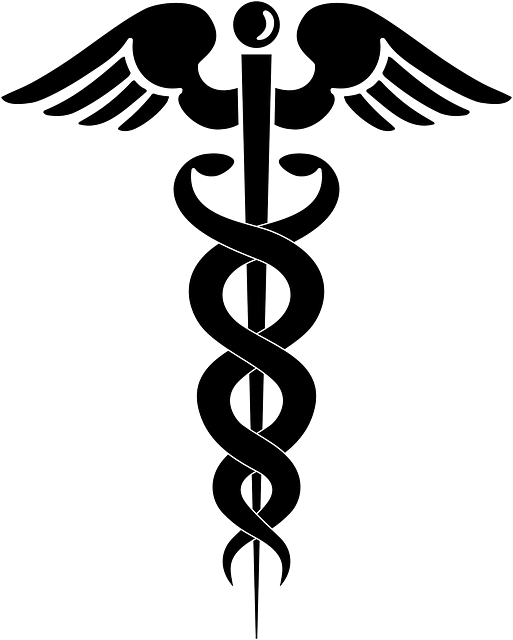In today's global healthcare landscape, translation services for UK Medical Case Studies are indispensable for sharing and advancing medical research. These case studies, rich in detail and insights, require professional translation to reach a diverse audience of healthcare professionals worldwide. Accurate translations ensure cultural sensitivity, preserve critical information integrity, and facilitate international collaboration, allowing UK medical expertise to have global impact. Specialized translation services navigate complex medical terminology, adhere to stringent regulations, and leverage technology like AI for efficient, high-quality translations, ultimately revolutionizing global healthcare communication.
The success of medical research and reporting in the UK heavily relies on effective communication, especially through case studies. However, presenting intricate medical information accurately across diverse languages poses significant challenges. This article explores the crucial role of translation services in enhancing UK medical submissions. From understanding complex case study requirements to navigating cultural nuances and legal standards, we delve into best practices ensuring precision and credibility. Discover how professional translation empowers medical professionals, researchers, and patients alike through enhanced accessibility and improved healthcare outcomes.
- Understanding UK Medical Submissions: A Brief Overview
- The Role of Case Studies in Medical Research and Reporting
- Challenges in Presenting Case Studies Across Languages
- Why Translation Services are Essential for Medical Precision
- Ensuring Accuracy: Best Practices for Translating Medical Terminology
- Case Study Translation: Adapting to Cultural Nuances and Legal Requirements in the UK
- Quality Assurance in Medical Translation: Maintaining Standards and Credibility
- Benefits of Professional Translation for UK Medical Submissions
- Future Trends: AI and Human-Powered Translation in Healthcare
Understanding UK Medical Submissions: A Brief Overview

The UK medical landscape demands rigorous documentation and submissions, where case studies play a pivotal role in conveying complex medical research and treatments. These case studies often require translation services to cater to the diverse linguistic needs of healthcare professionals across the globe. In the digital age, where information is readily accessible, understanding the nuances of these submissions is essential for researchers and practitioners alike.
UK medical case studies are typically submitted for peer review, regulatory approval, or academic publication. They detail unique patient journeys, treatment methodologies, and outcomes, offering valuable insights that contribute to evidence-based medicine. Professional translation services ensure that this critical information can reach an international audience, fostering global collaboration and advancing medical knowledge.
The Role of Case Studies in Medical Research and Reporting

Case studies play a pivotal role in medical research and reporting, offering a deep dive into specific patient scenarios and their outcomes. They provide invaluable insights into rare or complex conditions, helping healthcare professionals make informed decisions and improve treatment protocols. In the context of UK medical submissions, case studies are essential for showcasing the expertise and innovation within the healthcare system. These detailed narratives can highlight successful treatments, novel approaches, and patient journeys, ultimately enhancing the reputation of medical institutions and practitioners.
Translation services for UK Medical Case Studies have become increasingly important as global healthcare collaboration intensifies. Accurate and culturally sensitive translations ensure that valuable case studies are accessible to an international audience, fostering knowledge exchange and advancing medical understanding. This is particularly crucial in diverse healthcare systems where different languages and cultural contexts require tailored communication strategies.
Challenges in Presenting Case Studies Across Languages

When presenting case studies in medical submissions across different languages, researchers often encounter several challenges. One of the primary hurdles is ensuring accuracy and fidelity during translation. Medical terminology is complex and highly specialized, requiring translators with substantial knowledge in both the source and target languages to capture nuances accurately.
Additionally, cultural differences can significantly impact how cases are perceived and understood. What constitutes a relevant detail in one culture might be considered irrelevant or even offensive in another. This requires sensitivity and an in-depth understanding of cultural contexts by both the translators and the reviewers. Fortunately, professional translation services specializing in medical documents can help navigate these complexities, ensuring that case studies maintain their integrity and effectiveness throughout the UK medical submissions process.
Why Translation Services are Essential for Medical Precision

In the realm of medical research and submissions, accuracy is paramount, especially when presenting case studies intended for a UK audience. Translation services play a pivotal role in ensuring that medical documentation, research papers, and case reports are not only culturally sensitive but also meet the stringent requirements of the UK healthcare sector. The precision and clarity brought by professional translators are essential, as they navigate complex medical terminology and ensure the integrity of critical information.
For UK medical case studies, translation services are indispensable tools to bridge the gap between diverse languages and cultural contexts. Accurate translations guarantee that the nuances of medical research are conveyed effectively, enabling healthcare professionals, researchers, and regulatory bodies to interpret data accurately. This precision is vital to avoid misunderstandings or misinterpretations that could impact treatment plans, clinical trials, or regulatory decisions.
Ensuring Accuracy: Best Practices for Translating Medical Terminology

Ensuring accuracy in translating medical case studies for UK submissions is paramount to maintaining integrity and quality. Medical terminology can be complex, with precise terminology vital for effective communication in healthcare. When translating UK medical case studies, it’s crucial to employ professional translation services that understand this nuances.
Best practices include working with translators who are not only linguistically proficient but also have a strong background in medicine. They should stay up-to-date with the latest medical terminology and concepts through continuous training and professional development. Utilizing translation memory tools can help maintain consistency across terms, ensuring the translated document accurately reflects the original case study’s intent.
Case Study Translation: Adapting to Cultural Nuances and Legal Requirements in the UK

When translating medical case studies for submission in the UK, it’s crucial to go beyond literal word-for-word translations and instead focus on adapting content to cultural nuances and legal requirements specific to the UK healthcare landscape. This involves understanding not just language differences but also regional variations in medical terminology, clinical practices, and regulatory frameworks.
Translation services specializing in UK Medical Case Studies should employ linguists with expertise in both medicine and local context. They must be adept at conveying complex medical concepts accurately while adhering to stringent legal requirements for documentation within the National Health Service (NHS) or other healthcare institutions. Effective translation ensures that case studies remain true to their original intent, preserving critical details essential for clinical decision-making and research validity.
Quality Assurance in Medical Translation: Maintaining Standards and Credibility

Translation services for UK medical case studies require a meticulous approach to Quality Assurance (QA). With stringent regulations and high stakes involved in healthcare, maintaining accuracy and credibility is paramount. Professional translation companies specializing in this domain employ robust QA protocols to ensure every word transmitted captures the intended meaning and adheres to clinical context.
These protocols encompass multiple stages of review, including language experts, medical professionals, and proofreaders. This collaborative effort verifies terminology consistency, factual accuracy, and grammatical correctness. By integrating these rigorous standards, translation services for UK Medical Case Studies can guarantee that documents maintain their integrity, ensuring they meet the exacting requirements of regulatory bodies and healthcare professionals alike.
Benefits of Professional Translation for UK Medical Submissions

Professional translation plays a pivotal role in ensuring that UK medical case studies are accessible and impactful on an international scale. When submitting research to global audiences, accurate and culturally sensitive language is paramount. Translation services for UK Medical Case Studies specialize in this domain, offering expertise in medical terminology and localizing content for diverse markets.
These services provide numerous benefits. They guarantee that complex medical data is translated seamlessly, preserving its scientific integrity. Moreover, professional translators adapt the text to suit different cultural contexts, ensuring clarity and relevance for international readers. This enhances the reach and impact of UK medical research, fostering collaboration and knowledge exchange worldwide.
Future Trends: AI and Human-Powered Translation in Healthcare

The future of healthcare communication is set to be shaped by artificial intelligence (AI) and human-powered translation, significantly enhancing the way UK medical case studies are presented and understood. As technology advances, AI-driven translation tools are becoming increasingly sophisticated, offering accuracy and efficiency in a matter of seconds. These tools can translate complex medical terminology, ensuring that case studies remain accessible to a global audience, facilitating knowledge sharing and improving cross-cultural collaboration.
However, while AI provides speed and convenience, human expertise remains indispensable. Human translators with medical backgrounds bring a depth of understanding that AI cannot replicate. They ensure accuracy, cultural sensitivity, and the nuanced interpretation of medical concepts, making case studies truly comprehensive and reliable. The ideal approach combines the strengths of both AI and human translators, leveraging AI for initial drafts and quality checks while relying on human experts for final edits, ensuring the highest level of precision in UK medical case study translations.
In conclusion, translation services play a pivotal role in ensuring that UK medical case studies meet the stringent requirements of academic and clinical submissions. By addressing linguistic, cultural, and legal challenges through best practices and professional expertise, these services enhance the accuracy, credibility, and global impact of medical research. For healthcare professionals and researchers navigating the complex landscape of international publication, leveraging high-quality translation is essential to share knowledge effectively and contribute to the advancement of medicine across diverse populations.
